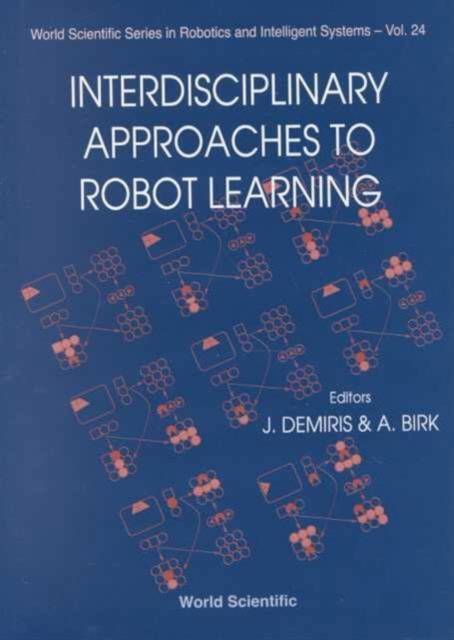
- Retrait gratuit dans votre magasin Club
- 7.000.000 titres dans notre catalogue
- Payer en toute sécurité
- Toujours un magasin près de chez vous
- Retrait gratuit dans votre magasin Club
- 7.000.000 titres dans notre catalogue
- Payer en toute sécurité
- Toujours un magasin près de chez vous
Interdisciplinary Approaches to Robot Learning
122,45 €
+ 244 points
Description
Robots are being used in increasingly complicated and demanding tasks, often in environments that are complex or even hostile. Underwater, space and volcano exploration are just some of the activities that robots are taking part in, mainly because the environments that are being explored are dangerous for humans. Robots can also inhabit dynamic environments, for example to operate among humans, not just in factories, but also taking on more active roles. Recently, for instance, they have made their way into the home entertainment market. Given the variety of situations that robots will be placed in, learning becomes increasingly important.Robot learning is essentially about equipping robots with the capacity to improve their behaviour over time, based on their incoming experiences. The papers in this volume present a variety of techniques. Each paper provides a mini-introduction to a subfield of robot learning. Some also give a fine introduction to the field of robot learning as a whole. There is one unifying aspect to the work reported in the book, namely its interdisciplinary nature, especially in the combination of robotics, computer science and biology. This approach has two important benefits: first, the study of learning in biological systems can provide robot learning scientists and engineers with valuable insights into learning mechanisms of proven functionality and versatility; second, computational models of learning in biological systems, and their implementation in simulated agents and robots, can provide researchers of biological systems with a powerful platform for the development and testing of learning theories.
Spécifications
Parties prenantes
- Editeur:
Contenu
- Nombre de pages :
- 220
- Langue:
- Anglais
- Collection :
- Tome:
- n° 24
Caractéristiques
- EAN:
- 9789810243203
- Date de parution :
- 13-06-00
- Format:
- Livre relié
- Format numérique:
- Genaaid
- Dimensions :
- 160 mm x 224 mm
- Poids :
- 471 g






